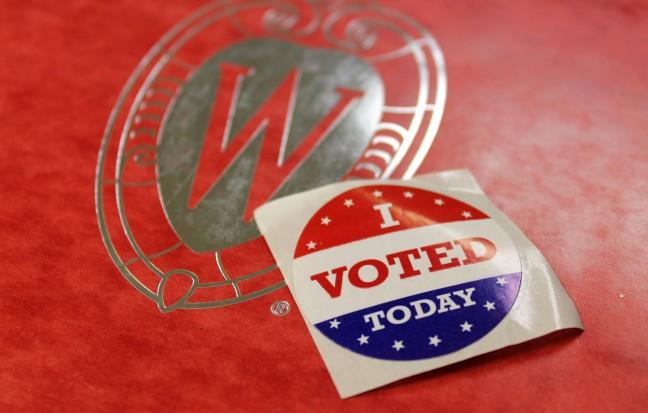A federal judge Tuesday delivered a major blow to Wisconsin’s 2011 law requiring voters to present a valid ID at the polls.
U.S. District Judge Lynn Adelman ruled voters without an ID will be able to sign an affidavit citing barriers to obtain an ID require “unreasonable effort,” for this fall’s presidential election. Wisconsin’s law requires voters to present a valid ID when casting their ballot.
American Civil Liberties Union senior staff attorney Karyn Rotker said it is surprisingly common for documents to not match, such as the name on a birth certificate and a social security card. People often have to go to court to fix these problems, Rotker said.
University of Wisconsin political science professor Barry Burden said the order affects the implementation of the voter ID law but people must still show ID if they are able to obtain it. People who do not have birth certificates, or have unreasonable difficulties obtaining documents need an alternative to a photo ID, Burden said.
“The judge said the law was unreasonable in their cases and that there ought to be an option for them to vote without an ID,” Burden said.
The groups most commonly known to have difficulties obtaining IDs are the elderly, students and the economically disadvantaged, he said.
The voter ID law was enacted in 2011, but because of other legal disputes was only enforced starting last year, Burden said.
Under the previous voter ID system, those without proper identification had the option to complete a provisional ballot, which would only count if the person was able to get proper ID within three days, Rotker said. Now, people can complete the affidavit to vote instead.
“People who have barriers to getting ID shouldn’t be prevented from voting,” Rotker said. “It’s failsafe for people.”
Burden said the ruling is somewhat of a compromise between those who support a strict ID law and those who do not think the law is necessary.
But advocates of the law say any weakening of the law may open the door to fraud and compromise its effectiveness, Burden said.
“If anyone can sign an affidavit, then it becomes a kind of back door to undoing the ID requirement all together,” Burden said.
Burden said students are expected to use the affidavit option more than others based on experience and studies showing students tend to have more difficulty in getting ID. Out-of-state students often don’t have a driver’s license or other kinds of ID that are needed and move frequently.
But University of Wisconsin spokesperson John Lucas said students should still get voter IDs, instead of relying on the affidavit. Being registered cuts down on stress, waiting and other roadblocks in voting, he said.
“We just want to encourage everybody to try to get set in advance and not depend on having to use an affidavit,” Lucas said.
Incoming students are asked if they have a voter ID and are encouraged to get one when they come in for SOAR, Lucas said. Students can get the IDs from the Wiscard office at Union South.
Rotker said most universities have voter IDs that students can get easily, but for students who are from out-of-state or whose campuses do not have voter IDs that adhere to state law, the affidavit acts as a “failsafe.”
“We are pleased that the court recognized the need for a failsafe to protect voting rights of people in Wisconsin,” Rotker said.
Burden said the ruling will be in place for the November general election, but not for the Aug. 9 primaries.
This post has been updated with additional information from John Lucas.


